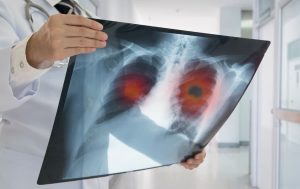
What Is a Clinical Trial and Is It Safe?
Clinical trials play a crucial role in advancing medical knowledge and improving patient care. However, patients considering participating in a clinical trial naturally want to
HIPAA Alert: Potential Data Breach Learn More
Questions on Oncology, Hematology and/or Infusion Clinical Services due to COVID-19 Crisis – CALL 833-698-1623
Important Information for Our Patients Regarding the Coronavirus.
RCCA Providing Area Cancer Patients with Access to Care During Coronavirus Outbreak
RCCA Offering Patients Virtual Visits During Coronavirus Pandemic
After a patient receives a diagnosis of testicular cancer, doctors will determine the cancer’s stage. Cancer staging identifies the extent of the cancer, such as whether it is contained to the organ or tissue where it began, or whether it has spread to nearby areas or throughout the body. This staging process helps physicians select the most appropriate treatment. The experienced oncologists of Regional Cancer Care Associates employ staging to develop and implement comprehensive treatment plans for patients with testicular cancer in New Jersey, Connecticut, Maryland, and the Washington, D.C., area.
Cancer occurs when cells in the body start growing uncontrollably. This abnormal growth can cause tumors t to form and to interfere with the body’s normal processes and functions. Testicular cancer starts in the testes, organs located in the scrotum sac that hangs below the penis. Depending on the type of testicular cancer and its stage, reproductive, urinary, or abdominal processes may be affected. In addition, when cancer spreads through the lymph or blood systems, it can reach distant areas of the body and cause further problems.

As noted, cancer staging is a system of categorization and an important element in determining cancer treatment plans. Determining a cancer’s stage also provides physicians with evidence-based insights into a patient’s long-term outlook – although each person is different and outcomes can vary widely between two patients with the same cancer and cancer stage because of factors such as age and overall health.
Testicular cancer stages are based on several factors, including the size of tumors, whether lymph nodes are involved, and whether the cancer has metastasized, or spread to other parts of the body. In assigning a testicular cancer stage, physicians draw on information from sources including physical examination, imaging, blood work, and biopsy.
While the stages of testicular cancer can be divided into subsets and described in great detail, there are four main stages:
Early detection of testicular cancer may be possible through awareness of symptoms and regular self-examination. Contact a medical professional if there are any noticeable changes in the testicles and remain alert for these testicular cancer symptoms:
Testicular cancer affects boys and men of all ages and ethnicities. However, most diagnoses are seen in Caucasian males between the ages of 15 and 45. Here are the main known testicular cancer risk factors:
The American Cancer Society publishes relative five-year survival rates for testicular cancer.
When testicular cancer is localized (has not spread outside the testicles), the five-year survival rate is approximately 99%. If cancer travels to distant organs, the rate falls to 73%. This decline highlights the importance of early detection and treatment to achieve better outcomes.
Testicular cancer is often curable, especially when diagnosed in the early stages. Regional Cancer Care Associates’ oncologists offer several evidence-based treatment options for testicular cancer, with the preferred approach for a specific patient determined by his cancer stage, tumor type, age and overall health, among other factors. Treatments, which sometimes are used alone and other times are offered in conjunction with one another or one after the other, include:
In some cases, physicians may recommend a strategy known as active surveillance, in which treatment is deferred in favor of closely monitoring low-risk tumors. A patient’s age and overall health, as well as the tumor type and stage, are considered when determining whether this may be the best initial approach.
Patients who have received a diagnosis of testicular cancer may consult with the highly experienced, compassionate medical professionals of Regional Cancer Care Associates. Obtain expert cancer care, as well as treatment for numerous blood disorders, at 25 convenient locations throughout New Jersey, Connecticut, and the Washington, D.C., area. Contact us to learn more.
Regional Cancer Care Associates (RCCA) offers high-quality, comprehensive and advanced treatment close to home. At RCCA, you’ll be treated by experts who are part of one of the largest cancer care networks in the country. We focus on every patient, individually, and work with you and your family to make sure your care is second to none.
For more information, or to schedule an appointment, call (844) 346-7222. You can also schedule an appointment by calling the RCCA location nearest you.

Clinical trials play a crucial role in advancing medical knowledge and improving patient care. However, patients considering participating in a clinical trial naturally want to

Research is ongoing to develop innovative treatments for cancers and blood disorders. Treating these diseases can be challenging, as they manifest differently in each patient,

Lung cancer is the second most common type of cancer affecting men and women in the United States, excluding skin cancers. It also causes more
When standard cancer treatments aren’t providing the results you want, clinical trials may offer hope. Our physicians use clinical trials to study new treatments, helping transform cancer care for the better. You can enroll in a clinical trial to try groundbreaking treatment plans at zero cost to you.

Regional Cancer Care Associates is one of fewer than 200 medical practices in the country selected to participate in the Oncology Care Model (OCM); a recent Medicare initiative aimed at improving care coordination and access to and quality of care for Medicare beneficiaries undergoing chemotherapy treatment.